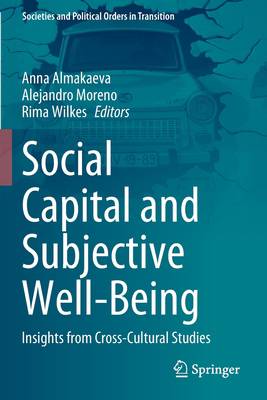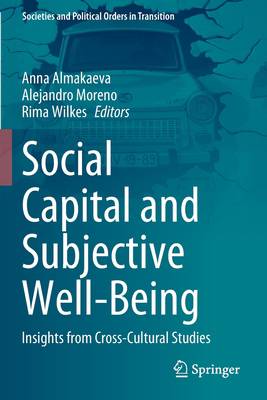
- Retrait gratuit dans votre magasin Club
- 7.000.000 titres dans notre catalogue
- Payer en toute sécurité
- Toujours un magasin près de chez vous
- Retrait gratuit dans votre magasin Club
- 7.000.0000 titres dans notre catalogue
- Payer en toute sécurité
- Toujours un magasin près de chez vous
Social Capital and Subjective Well-Being
Insights from Cross-Cultural Studies
Description
This book presents a cross-cultural investigation into the interplay between social capital and subjective well-being. Based on a quantitative analysis of the latest large-N cross-cultural data sets, including the World Value Survey and the European Social Survey, and covering various countries, it offers a comparative perspective on and new insights into the determinants of social capital and well-being. By identifying both universal and culture-specific patterns, the authors shed new light on the spatial and temporal differentiation of social capital and subjective well-being.
The book is divided into two main parts: The first discusses mutual trust, religious and cultural tolerance, and pro-social and human values as essential dimensions of social capital. In turn, the second part studies social capital as a source of subjective well-being and life satisfaction. Given its scope, the book will appeal to scholars of sociology, social psychology, political scienceand economics seeking a deeper understanding of the multi-faceted nature of social capital and well-being.
Spécifications
Parties prenantes
- Editeur:
Contenu
- Nombre de pages :
- 269
- Langue:
- Anglais
- Collection :
Caractéristiques
- EAN:
- 9783030758158
- Date de parution :
- 03-10-22
- Format:
- Livre broché
- Format numérique:
- Trade paperback (VS)
- Dimensions :
- 156 mm x 234 mm
- Poids :
- 408 g

Les avis
Nous publions uniquement les avis qui respectent les conditions requises. Consultez nos conditions pour les avis.





